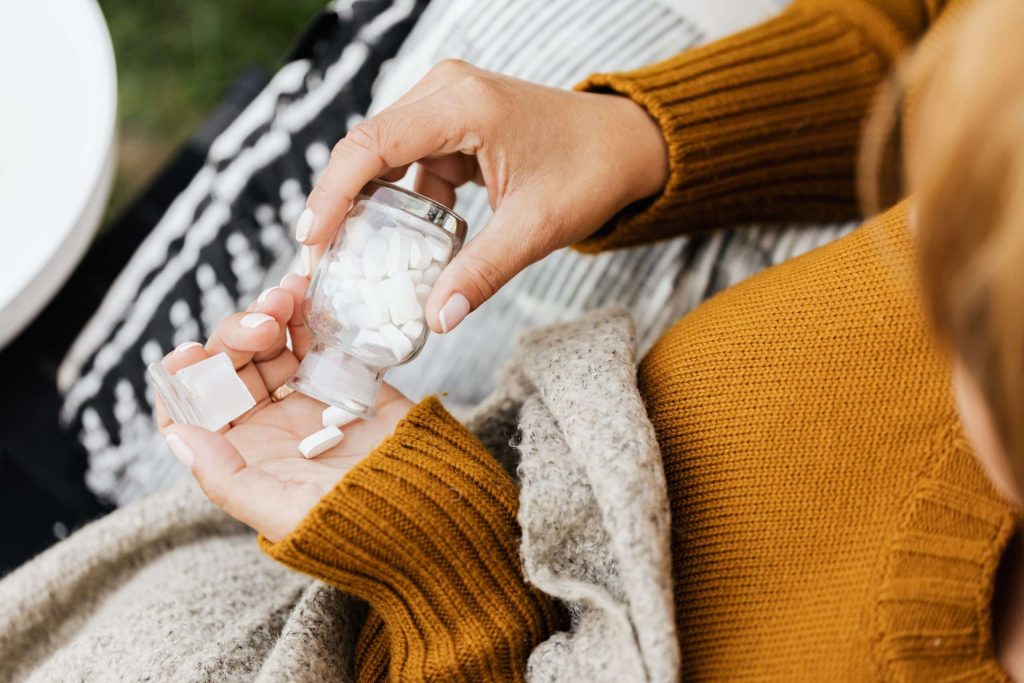Supplements or food. Why nature sometimes needs a helping hand.
Higher exposure to stress, environmental pollutants and even viruses increase the need for micronutrients that support detoxification, repair and immunity. Maya Oakley, nutritionist, investigates if it’s possible to get these nutrients from food alone
Humans evolved eating wild foods that contained dramatically higher levels of all vitamins, minerals, and essential fats. Unfortunately, even with a ‘perfect’ diet, modern developments are against us. In the complex world of farming, intensive practices, genetic changes, and food processing take a toll. Environmental stress adds to the strain, depleting our soils. On another front, storage and transport processes complicate the challenges our ecosystems face. With these factors, getting enough vitamins and minerals from food alone becomes nearly impossible!

Many of us are overfed and undernourished.
Despite having an abundance of food, much of it is highly processed and lacks essential micronutrients. Many of us have a very low intake of the whole foods that contain the essential micronutrients we need to be optimally healthy. Which is why it doesn’t have to be a question of supplements or food. It could (and probably should) be both.
Growing rates of obesity and metabolic disorders like type 2 diabetes also increase the demand for certain nutrients: fat cells absorb essential nutrients like Vitamin D reducing the amount available for essential functions. Processed, high-sugar, high-calorie foods contain almost no nutrients, yet require even more vitamins and minerals to metabolise them.
Optimising health not just preventing disease.
The WHO definition of health is ‘a state of complete physical, mental and social well-being and not merely the absence of disease or infirmity.’ I would argue many of us are not living in a state of complete physical and mental wellbeing. Ensuring optimum nutrient status can go a long way to improve this.
Vitamins and minerals are the cofactors or coenzymes that make virtually every biochemical process in your body function. It’s estimated that around 90 percent of the population are deficient in at least one vitamin or mineral. That doesn’t mean they receive less than the amount needed for optimal health: it means they receive less than they need to avoid deficiency diseases like rickets or scurvy.
While there is much discussion about whether supplements are good for you, I usually recommend using certain supplements to boost my clients’ intake of essential nutrients and create a tailored plan according to their needs. This is always in conjunction with a healthy balanced diet.

My advice on supplements or food.
While you can’t out-supplement a poor diet, in addition to balanced eating and stand-alone supplements to address individual symptoms, I might encourage people to take a good quality multi-vitamin and mineral complex.
Often people think that a multivitamin is worthless. That it won’t contain adequate amounts of an individual nutrient to have any impact. With many products on the market this is true. But if you become label-savvy you will see there is a huge variation in amounts. And while certain things like magnesium will not be present in considerable amounts and should be supplemented separately, with a good quality supplement you should find sufficient amounts of most micronutrients to ensure a baseline.
It’s also worth mentioning that vitamins and minerals do not exist in isolation in nature. There’s an argument to support additional benefits from supplementing them in combination – different vitamins and minerals are needed for the absorption, transport and use of other vitamins and minerals. In most cases these formulations provide levels of nutrients in line with dietary reference ranges. They may even be in line with ‘tolerable upper limits’ if studies show that nutritional benefits outweigh any risk to health.
When it comes to choosing the form of multivitamin you take, capsules and tablets are the most common. It’s equally beneficial to take a liquid multivitamin if you have difficulty swallowing or malabsorption issues. If swallowing is a problem, capsules can be opened and added to food and smoothies .
Disclaimer: This information is not intended to diagnose, treat or cure any condition. If you have a medical condition, are pregnant, or take any form of medication, consult a trained professional or doctor before taking supplements.






